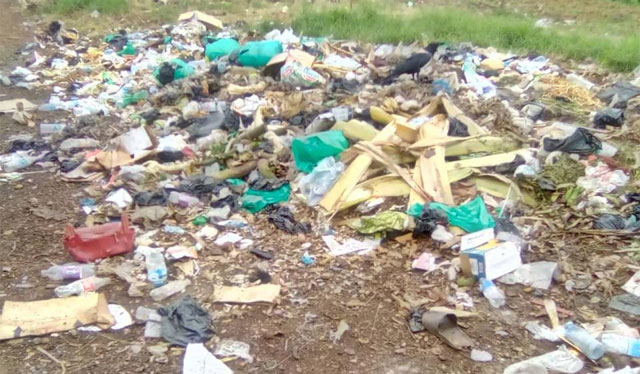
Entebbe, Uganda | THE INDEPENDENT | There is a public outcry on the changing face of Entebbe, to an image that is not befitting of a town that was up until recent years branded one of the cleanest towns in Uganda.
Its location, as the host of Uganda’s sole international airport, the Botanical Gardens, the famous Entebbe Zoo and as a peninsular into Lake Victoria, gave it a niche, as an ideal destination for tourists to historical sites, leisure parks and sand beaches. Back then, a visit to Entebbe came with a breath of fresh air as a gentle breeze from the lake swept through the town, blowing the wind softly, through the clean streets.
But this is no more. The town is now covered with heaps of garbage on major streets and lanes, sometimes clogging the drainage system and triggering floods on rainy days. A walk on the streets will now lead you to tonnes of organic material mainly from households, raw vegetable matter and food wastes from markets, metal, plastics, drain cleanings and animal matter waste from slaughterhouses, medical waste and cesspool waste, in some areas.
The most affected are the areas of Kiwafu Central, the areas surrounding Kiwafu Muslim Primary School, Lugonjo, Banga-Nakiwogo, and Katabi-Busambaga. The atmosphere in some of these areas is now covered with a foul stench emanating from overfilling and spillage of decaying matter at the collection centres.
Sammy Mulungi, a resident of Kitooro, says that the problem is due to the lack of central collection points and insufficient dust bins on the streets, yet many of them cannot afford the monthly collection rates that range between 10,000 and 50,000 Shillings, by private collectors. As a result, he says, desperate residents now use the cover of darkness to dump garbage in trenches and other illegal spots.
Several other residents argue that the garbage collectors deployed by the municipal council take almost a week without collecting garbage from some parts of the municipality such as shops in Kitooro and in Katabi-Kanonakali. Although, a colleague among them says he has seen trucks collecting garbage at least three times a week in Kitooro.
But Ibrahim Mitti, the Assistant Town Clerk of Entebbe Division B says that currently two of their garbage trucks are not in service. The municipality, with 24 villages, has four trucks, which are supposed to collect garbage bi-weekly in Kigungu and at least thrice in the rest of the municipality. He adds that during the rains, the road to the dumping site in Nkumba, Katabi Town Council is inaccessible, exacerbating the problem.
Charles Wasswa, the LCII Chairperson of Kiwafu ward observes a need for mass sensitisation on proper waste disposal. Similarly, Ivan Mubiru, a resident of Lugonjo-Nakiwogo says people need to learn how to sort rubbish and be guided on the proper waste disposal which will ease collection.
Entebbe Town Clerk Charles Magumba says that the municipality is phasing out the use of collection centres because the garbage trucks will move door to door in all residential and commercial areas to collect garbage in the near future. For now, the trucks move to selected areas.
Meanwhile, Vincent DePaul Kayanja, the Entebbe Municipal Mayor blames the failure on poor revenue collection. Since July, when the 2020/2021 financial year commenced, Kayanja says the council has collected about 2.4 billion out of the target of 4 billion Shillings. The council spends about shillings 400 million annually on waste management.
Kayanja acknowledges the need for mass sensitization. He adds that the most sustainable way is for everyone to manage their own garbage, as stipulated in the Physical Planning Act, 2020.
*******
URN
 The Independent Uganda: You get the Truth we Pay the Price
The Independent Uganda: You get the Truth we Pay the Price





